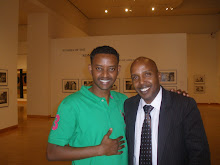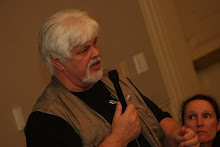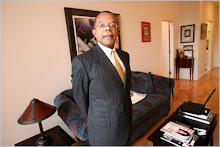Somali population counted on
By Dave Aeikens • daeikens@stcloudtimes.com • May 15, 2010
Comments(73)Recommend(1)Print this page E-mail this article Share
Del.icio.us Facebook Digg Reddit Newsvine Buzz up!
Twitter FarkIt Type Size A A A Next Page1| 2| 3Previous PagePinpointing the number of Somali immigrants who have moved to the St. Cloud area has been an elusive goal.
It has city and Somali leaders eagerly awaiting the results of the 2010 census for a better answer.
Government officials and those who work to assist the people who have continued to move to St. Cloud and the surrounding area in the past decade have been relying on estimates that most agree are unreliable.
Estimates of the local Somali population range from 6,000 to 10,000. No one really has a solid number and government officials and support organizations say that makes it difficult to plan for jobs, housing, parks and recreation, English instruction and social services. The city also has a growing population of Sudanese and Ethiopian immigrants.
“There is no concrete number for my community. Nobody can estimate how many are living in St. Cloud or Central Minnesota,” said Ali Yusuf, who is the operation coordinator for the Somali Elder Council, which has an office near downtown.
The census short form does not ask about the resident’s country of origin, but many believe the 2010 count, along with the American Community Survey that asks more
specific questions over time, will provide a better handle on who is here. Among the questions the longer survey asks are when someone entered the United States, what country they came from and what languages are spoken at home.
St. Cloud school district has been able to get a handle on how many Somali students it has by tracking the primary languages spoken by its students.
The lack of solid demographic data has been a challenge for the city of St. Cloud. Matt Glaesman, planning director for the city of St. Cloud, said it is important to know who is living in the community and where because it helps planning.
“The 2010 census will be the first real look at the total for our community. I think the others are projections that I don’t have great confidence in,” Glaesman said.
To that end, a local census committee put effort into significant outreach to make sure Somalis filled out their census forms. Leaders from the Somali community and support organizations were included in the “Complete Count” committee that had discussions about engaging difficult-to-reach residents.
Somali population counted on
By Dave Aeikens • daeikens@stcloudtimes.com • May 15, 2010
Comments(73)
| 2| 3Previous PagePinpointing the number of Somali immigrants who have moved to the St. Cloud area has been an elusive goal.
It has city and Somali leaders eagerly awaiting the results of the 2010 census for a better answer.
Government officials and those who work to assist the people who have continued to move to St. Cloud and the surrounding area in the past decade have been relying on estimates that most agree are unreliable.
Estimates of the local Somali population range from 6,000 to 10,000. No one really has a solid number and government officials and support organizations say that makes it difficult to plan for jobs, housing, parks and recreation, English instruction and social services. The city also has a growing population of Sudanese and Ethiopian immigrants.
“There is no concrete number for my community. Nobody can estimate how many are living in St. Cloud or Central Minnesota,” said Ali Yusuf, who is the operation coordinator for the Somali Elder Council, which has an office near downtown.
The census short form does not ask about the resident’s country of origin, but many believe the 2010 count, along with the American Community Survey that asks more
specific questions over time, will provide a better handle on who is here. Among the questions the longer survey asks are when someone entered the United States, what country they came from and what languages are spoken at home.
St. Cloud school district has been able to get a handle on how many Somali students it has by tracking the primary languages spoken by its students.
The lack of solid demographic data has been a challenge for the city of St. Cloud. Matt Glaesman, planning director for the city of St. Cloud, said it is important to know who is living in the community and where because it helps planning.
“The 2010 census will be the first real look at the total for our community. I think the others are projections that I don’t have great confidence in,” Glaesman said.
To that end, a local census committee put effort into significant outreach to make sure Somalis filled out their census forms. Leaders from the Somali community and support organizations were included in the “Complete Count” committee that had discussions about engaging difficult-to-reach residents.
Yusuf has worked out of his office to spread the word, including helping people fill out the forms and going to doors with census counters to translate or help with whatever else is needed. Somali immigrants have the legal paperwork to be in the country and to work in the United States, Yusuf said. So there should be no fear of deportation that some immigrants might have.
Yusuf has a bag of trinkets in his office at the Elders Council on St. Germain Street that he hands out to bring attention to the census. The poster on the wall promoting the census is written in Arabic.
At the St. Cloud Area Somali Salvation Organization in east St. Cloud, staff and volunteers have worked to make sure Somalis fill out the 10-question census form that asks for the number of residents in the household.
Efforts have included talking to people about the importance of filling out the census to sitting down and filling out the forms for Somalis who don’t speak English, said Mohamoud I. Mohamed, executive director of SASSO, which provides support for Somali refugees.
“I want to help the area receive enough budget to support the population in here,” Mohamed said.
Gary Loch has developed a relationship with Somalis through his work with St. Cloud school district and St. Cloud Technical and Community College. He said the estimates for the St. Cloud Somali population create challenges in determining needs from housing to jobs.
He said the school district has the burden of dealing with some of the issues that confront the newcomers from Somalia. The district has more than 700 students who list Somali as their primary language. Programs for non-English speaking students continue to grow. The transition of the new residents is a community issue not just schools, he said.
“If we have a better handle on how many people are here, we will be able to get the resources to address some of these things,” said Loch, diversity coordinator for SCTCC who used to have the same position at St. Cloud school district. Loch is also chairman of the board of directors for the St. Cloud Somali Elders Council. The board Loch chairs is helping the Elders Council seek nonprofit status.
The person who directs Lutheran Social Service employment and housing services for refugees said the face of St. Cloud has changed dramatically in the past 10 years.














